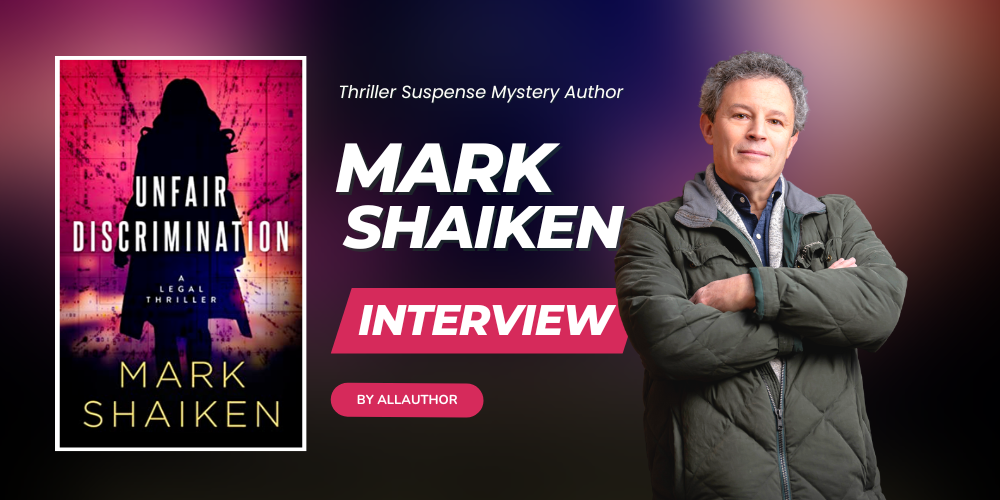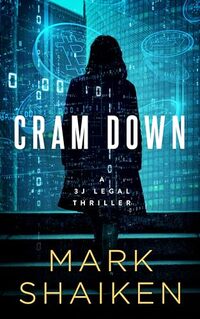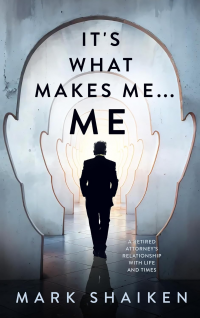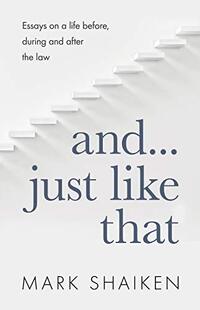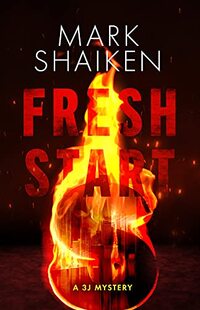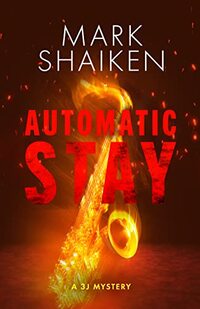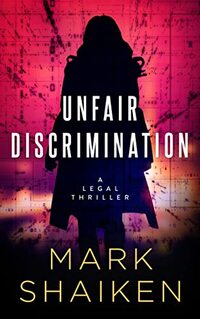What is a childhood memory that makes you smile?
Playing stickball in the street in New Hyde Park. I write about my life in NHP in my memoir, “And . . . Just Like That.”
Who was the first person you shared your first-ever story with?
I’m sure I wrote my first story in grade school so whoever was my teacher would have been the first to read it.
Can you tell us about your journey from practicing commercial bankruptcy law for almost forty years to becoming a writer? What prompted this transition?
I was the “reluctant attorney” going to law school because I couldn’t identify something else to do and my folks weren’t too excited that I might take off a couple of years after college to try to write a book. I went to law school to give myself three more years to figure out what to do with my life, got my first law job after graduation, and then I spent most of my four decades in the law thinking and dreaming of not being a lawyer. I thought of it as retiring from the law. Eventually, I started to change my perspective, and no longer thought about retiring from the law, but rather pivoting to something else. The “something else” turned out to be several things about which I am passionate: music, writing, being creative, and photography to name a few. As well as volunteering which I never seemed to have enough time to do while I practiced law. I found a way to start to measure my life by what I could give rather than measuring a career by what I could get.
Your background in law is quite extensive. How has your experience as a lawyer influenced your writing, particularly in the legal thriller genre?
My lead character is a black, female bankruptcy attorney in a fictional, large Kansas City law firm. Her experiences as a bankruptcy attorney, while fictional, reflect some ins and outs of a chapter 11 business bankruptcy case, what really happens in court, what really happens in a deposition, what really happens as a judge reviews a case in chambers. My experience as a corporate bankruptcy attorney has given me the tools to make sure that what I write is true and accurate for the bankruptcy theme while writing in such a way that the story is approachable for all readers, not just lawyers.
You set your books in Kansas City with a backdrop of Jazz, BBQ, and history. How did you decide on this setting, and how does it contribute to the atmosphere of your stories?
My family and I lived in Kansas City for twenty-five years and even though we’ve now been in Denver almost seven years, Kansas City is still the city I know the best. It often surprises people who have never been there as to just how rich the Kansas City culture is, and it is not an often-used backdrop for fiction. The trio of Jazz, BBQ, and American History are inseparable from the fiber of what makes Kansas City the place that it is. Jazz came into its own in Kansas City in the 20s, 30s, and 40s. Famous Jazz artists who shaped the genre were based in KC, such as Count Basie, Jay McShann, Charlie Parker, and others. And the city still has a rich Jazz culture today. Kansas City is one of the handful of BBQ capitals of the U.S., where people passionately debate which is the best BBQ joint, who has the best sauce, and who’s secret dry rub is the best. And KC and the surrounding areas played a pivotal role in the Civil War, including the battle of Westport in KC, thought to be a defining moment in the eventual surrender by the South at Appomattox. I wanted my books to pay homage to the trio and I hope they do.
The titles of your books in the 3J Legal Thriller Series are quite intriguing ("Unfair Discrimination," "Automatic Stay," "Fresh Start," and "Cram Down"). Can you explain the significance of these titles and how they relate to the themes of your novels?
Each title represents a provision in, or a tenet of, the bankruptcy code. The title for each book is the cornerstone bankruptcy issue presented in each story and also references a hidden non-bankruptcy theme in each book.
Jazz, BBQ, and history are unique elements that feature in your novels. How do you incorporate these aspects into your storytelling to create a rich and immersive experience for your readers?
I love Jazz; I love to eat Kansas City BBQ; and I enjoy American history. 3J loves Jazz, and she and her mentor love to eat BBQ. The Jazz references in the book are real and hopefully accurate, and as 3J listens to Jazz, the descriptions of the music she has cued up on her stereo are how I would describe the tunes and the artist. Each book features a different BBQ joint where 3J and her mentor eat, usually drawn from my personal favorite BBQ joints. The American History referenced in the book are real. The real battles that took place in and around KC, the real history of KC’s role in slavery before the Civil War, the real border conflicts between Missouri (a slave state) and Kansas (a free state) and the real landmarks in KC that still reference the Civil War. The discussion of the historical segregation in KC is real and allows me to offer my commentary about it and about topics such as White Nationalism even in a fiction genre.
"And. Just Like That - essays on life before, during, and after the law" is a memoir about your experiences as a not-so-famous lawyer. What motivated you to write this memoir, and what insights or lessons do you hope readers will gain from it?
I wrote AJLT mostly for me. In the introduction, I describe it as my couch session to get off my chest the good, the bad, and the ugly of a life spent practicing law in big law firms. I didn’t know if my thoughts would resonate with others, but as it turned out, many lawyers read AJLT and contacted me to discuss their career and their interest in leaving the practice of law. I didn’t expect that. Also, podcasters had me on their show to talk about my career pivot, and I enjoyed those interviews (linked on my website).
Your upcoming book, "Cram Down," is the latest installment in your 3J Legal Thriller Series. Could you give us a sneak peek into the plot or themes of this book?
Here is the book blurb teaser: “Kansas City attorney Josephina Jillian Jones, 3J to her friends, has dealt with people perpetrating online disinformation, white supremacists, and clients hiding assets in Swiss bank accounts, so when a couple who heads up a company that builds inner city housing for marginalized communities comes to her for legal help because their longtime banking partner has shut off their funding, the case appears at first blush to be tame by comparison. But when the bank president disappears and his greed-driven brother seems the likely culprit, things heat up. And when it appears the Kansas City mob is involved, the race is on to save both the company and the bank president. Lives are at stake and the clock is ticking. 3J has a reputation for being fierce and determined, but she’s going to need both help and a little luck to save the day this time.” Cram Down is my first foray into the world of Kansas City mobs and I loved researching the influence of mobs in Kansas City and how impactful the mobs have been on Kansas City’s history.
Writing a series can be challenging in terms of maintaining consistency and keeping the story fresh. How do you approach these challenges when writing consecutive books in the same series?
It is challenging as I create my own little galaxy that is expanding with each new book in the series.
I keep a spreadsheet of all characters so I can be consistent from book to book. I have a road map of 3J’s personal development, including her social life, and snippets of yet-to-be-disclosed information about her childhood growing up in New Orleans and her college days at Whitman College in Walla Walla, Washington. I have a similar road map of her mentor’s character development, so I keep a record of not only where each character has been in the published books but where I hope they are going in upcoming books. I use Microsoft’s OneNote to help keep track of the characters as well, so I am consistent.
Your writing style has garnered awards and recognition. How do you balance the legal intricacies of your novels with keeping the narrative engaging and accessible to readers who might not have a legal background?
My editor and my reader are great at reining me in from conveying too much technical detail. The goal is to strike a balance between enough legal and financial detail so the scenes in the book are accurate and compelling, and hoping the detail doesn’t detract from the excitement, the story, and the ending. I think it is the same balance with which an author must grapple in other genres, such as police novels. I think I am getting better at the balance since the first 3J book – Fresh Start.
Many authors have specific routines or rituals that help them in their writing process. Could you share some insights into your writing routine and how you stay productive and creative?
I write and publish a book a year, although in ’22, I wrote and published two. When I’m writing, I try to write for no less than two hours a day, six days a week, usually starting in the morning. I use an outline (in Microsoft OneNote) and snippets of what I want to say that I wrote in notes I keep before the book writing began (also in OneNote). If during the two hours I only write ten words, then so be it. Usually, however, I’m productive (at least so far in my writing career) and I end up writing for over two hours each day. I usually use day seven to edit. When I’m not writing, I’m researching for the next book. So, right now, I’m not writing, as I am finishing up the editing process for Cram Down. Once it comes out (in the early Fall I expect), I’ll start researching the next 3J book – For Cause.
Beyond writing, you mention that you also volunteer, travel, and play music. How do these other activities influence your writing and creative process?
You write what you know. William Pascale, 3J’s mentor, plays guitar and writes songs, as do I. The songs he writes and mentions in the books are songs I have written and recorded, and on social media, I will occasionally post one of those songs and note that in the book, Pascale writes and performs the song I am posting. 3J loves Jazz as do I. I sit on several boards of organizations whose missions are important to me: housing for marginalized communities; housing for the elderly; teaching music for underprivileged kids. The things I am passionate about show up in the books through one or more of the characters and plotlines.
Could you share a memorable reader interaction or feedback that made a significant impact on you as an author?
It’s exciting to read reviews by enthusiastic readers. A couple of their comments really put a smile on my face: “ legal drama brimming with meticulous detail. . . ;” and “[A]n adrenaline-inducing legal thriller . . . ;” and “he set the gold standard for modern legal thrillers . . . ,” come to mind as my favorite comments.
How long have you been associated with AllAuthor? How has your experience been?
I am relatively new to AllAuthor, and I wish I had joined long ago. The experience has been wonderful. Everyone at AA is professional and responsive and it is a great way to put together readers and authors.








